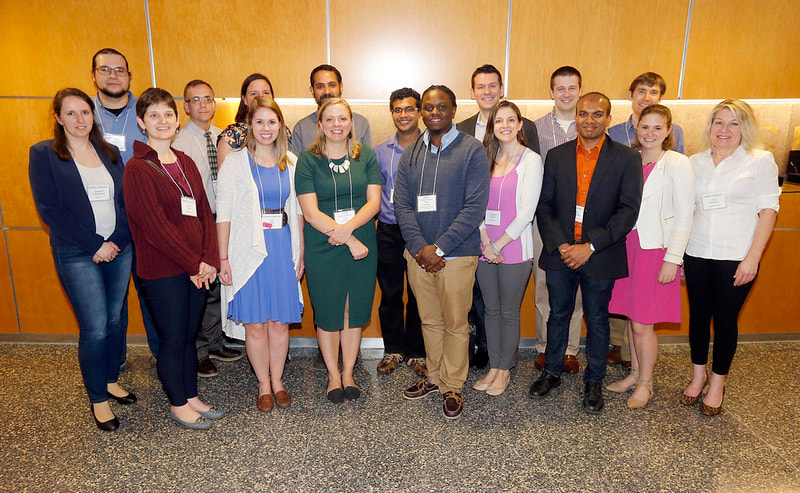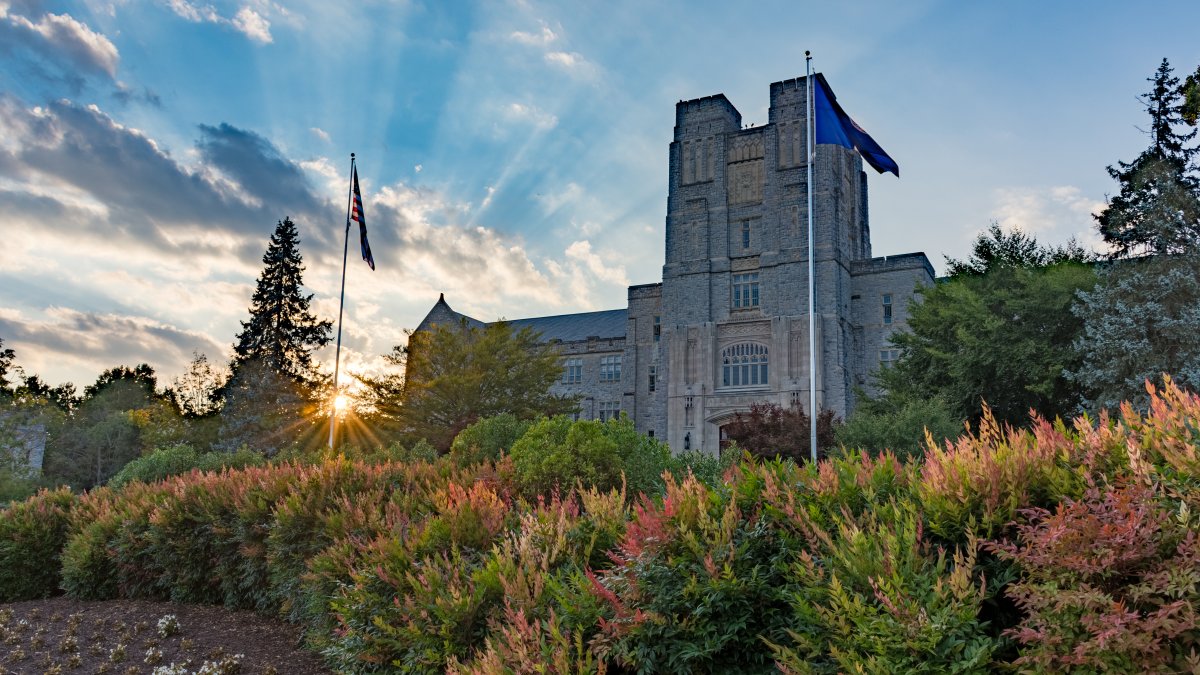Serendipity is defined as an unplanned fortunate discovery and is often cited as being influential in career choices and transitions. Past studies have shown that well over half of individuals acknowledge serendipitous events play a role in career decision making or are influential on their careers. There is more than luck involved, however. In fact, an entire theory of career exploration and discovery centers around planned happenstance. The central notion of the planned happenstance theory of career exploration is that an individual must acknowledge the value of unplanned events as potential opportunities and be willing to act on them to realize potential upsides to their personal and professional development.
- Curiosity - be open to and explore new learning opportunities
- Optimism - view new opportunities as possible & obtainable
- Persistence - exert effort despite setbacks
- Flexibility - adapt to changing attitudes & circumstances
- Risk taking - take action in the face of uncertain outcomes
I encourage you to exercise these skills and embrace the moment in 2022 despite not knowing your ultimate destination. That is how you will cultivate serendipity and be able to take advantage of the unexpected opportunities you will surely encounter to enhance your professional life and career.
And your community is so much more than your current work or school environment. In fact, expanding your participation in a variety of communities, organizations, or groups will undoubtedly expand your network, potentially allow you to gain new skills and self-knowledge, and may open the door to new and exciting opportunities you can not yet imagine.
I will share my own serendipitous journey to my current field working in postdoctoral affairs to illustrate how you can create unexpected opportunities for yourself that could lead to destinations that, while unplanned and unforeseen at the outset, are rewarding and fulfilling landing places.
I served in the Vanderbilt Postdoctoral Association (VPA) as Treasurer in 2016-17 and Junior Co-Chair (Vice President) in 2017-18. When I decided to volunteer in my first leadership role, I didn’t really consider myself leadership material. I am pretty quiet and reserved but realized this group was doing important work including building a community of support for postdocs and linking them to resources on campus. My curiosity and desire to give back and contribute to an important cause pushed me to take the risk of getting involved in a leadership role in the VPA, which introduced me to postdoctoral affairs as a potential career path.
Working with the VPA, I also met many awesome people doing amazing things, including some postdocs with whom I would never have interacted if I stayed in the lab or only attended departmental events. The VPA leaders I worked with over my three plus years in the association have gone on to a variety of exciting careers: Director of Data Science at Healthcare Bluebook, AAAS Science & Technology Policy Fellow now working as an Environmental Protection Specialist at the US Environmental Protection Agency, Research Program Manager at Regeneron Pharmaceuticals, Assistant Scientific Director at AbbVie, and Assistant Professor at the University of Florida. Having this expanded network helps me in my current role as I can connect current postdocs interested in pursuing these career paths with my former VPA colleagues.
You don’t have to get involved with your local postdoctoral association to find volunteer opportunities that can be useful for you both personally and professionally. Graduate student associations or volunteer opportunities in scientific or professional societies are other options to explore. You can also take advantage of opportunities to hone specific skills through volunteering. Like communicating science? Why not volunteer at your local science museum or join a community like NPR Scicommers? Interested in a career in medical writing? The American Medical Writers Association has local chapters across the US.
Prototyping potential alternative careers through volunteering or other experiential learning opportunities can be very helpful as you explore what to do after your graduate or postdoctoral training. Getting involved in specific activities that allow you to pursue a line of work you might be interested in will help you test them out as a potential career path for you. You can self-reflect during these activities asking: Do I enjoy doing this?, Do I need to develop some specific skill before seeking formal employment in this area?, etc...
You may discover you can build a fulfilling career out of the skills and experiences you exercise outside the lab or your scholarly work, combining them with your other strengths to do something you are both good at and enjoy. By venturing outside your school/work, you will also meet a more diverse group of professionals (expanding your network) and start to learn about the many career opportunities out there in the world.
My involvement in the VPA and National Postdoctoral Association (NPA) – I began by volunteering to write pieces for The POSTDOCket in 2017 – opened my eyes to another career path beyond academic research and allowed me to better understand some of the major issues affecting the postdoctoral population. I also came to realize I could make an impact working to improve the postdoctoral experience as a career. I landed my current role as Postdoctoral Affairs Program Manager at NC State University in early 2019 and encourage you to check out this piece in The POSTDOCket to learn more about my decision to pursue a career in this area. My current role is both challenging and rewarding, allowing me to lean into my mentorship and empathy strengths to support postdocs both individually and as a community.
An organization whom I volunteered with after starting my new role, the Graduate Career Consortium (GCC), offers a variety of resources and opportunities to support professionals working in the graduate student and postdoc career and professional development space. GCC members also contribute to this weekly Carpe Careers blog, which allows us to share our expertise and advice with a broad audience. The GCC has many exciting committees and initiatives to get involved in and offers trainee memberships available should you be a graduate student or postdoc interested in exploring a career in this area!
Engaging in this “extra” opportunity allowed me to develop additional knowledge of metrics associated with faculty job market success that enhance my ability to support postdocs in their career preparation. In addition, this experience allowed me to produce scholarly work in my new profession, despite it not being possible in my day job. Furthermore, it demonstrates one can contribute meaningfully to creating new knowledge that has an impact despite not being a faculty or research staff member. It opened my eyes to the fact that doing impactful scholarly work in the area of education and outcomes research was possible for me in an administrative role.
While you should certainly not over-extend yourself with too much extracurricular work, I believe taking on additional opportunities when you think they will help you learn and grow in a new area is worth it.
I have found a great sense of confidence and competence through my volunteer and extracurricular efforts over the past several years. I also went beyond the bounds of my day job at NC State to demonstrate leadership and expertise in a new profession that will serve me well as I take on the task of instilling best practices in postdoctoral affairs and career and professional development for postdocs at Virginia Tech. I will be looked to as a leader and expert, which just three short years ago I would not have considered myself to be. As a postdoc four years ago, I couldn’t even imagine this is where I would be in my career.
One’s future path is difficult to see at the outset but in retrospect there is often a thread you can follow that connects you to your current situation. Leaning into your curiosity, taking risks, and having confidence that your skills, interests, and values will align to yield amazing results is critical.
You never know where the choices you make, that at the time may seem outside of your “plan,” can ultimately lead. Acknowledging the need to be open to new opportunities to build skills, try out new tasks, and grow your network can help diversify your career prospects. But if you don't put yourself out there, it certainly will be a challenge to take advantage of serendipitous opportunities that could result in you arriving at an exciting destination you can’t yet imagine today.





 RSS Feed
RSS Feed